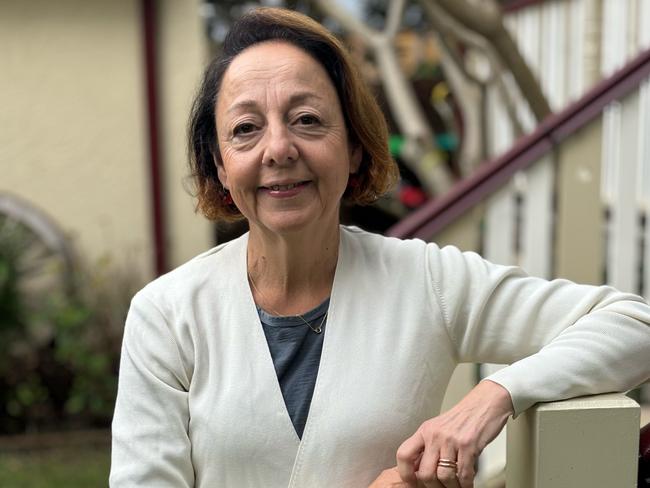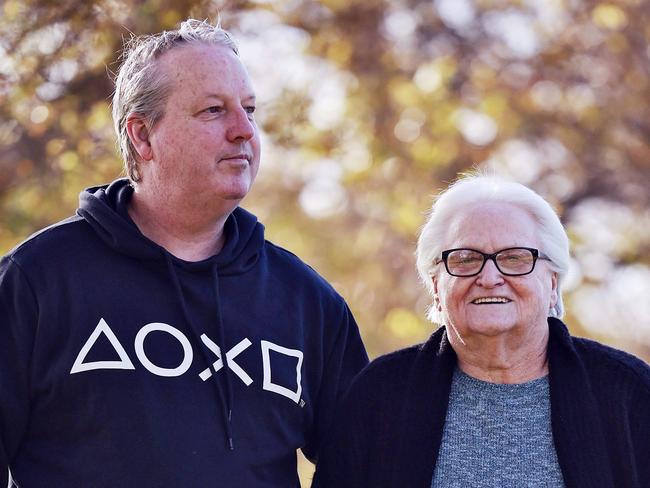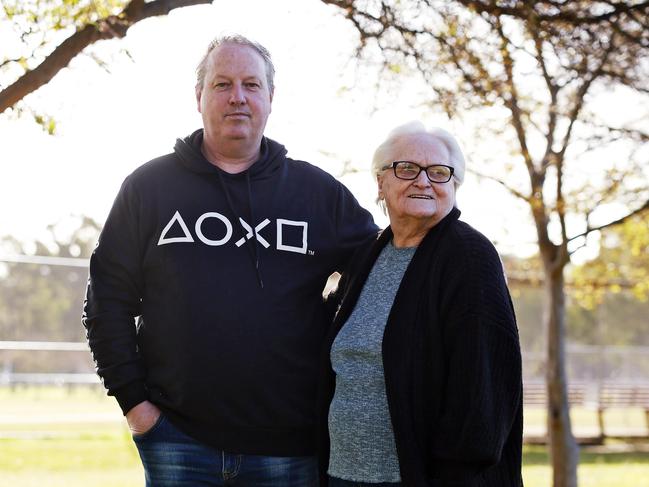Aged care homes face claims of neglect, mismanagement as families seek legal advice
Patricia Shea may not be here if it wasn’t for her son’s efforts to persuade paramedics to take her to hospital from her aged care.
Health
Don't miss out on the headlines from Health. Followed categories will be added to My News.
At least six families are currently seeking legal advice over the deaths of their loved ones in aged care.
They believe their deaths could have been prevented if they had received quicker or better healthcare.
Official figures show almost 200 unexpected deaths were reported to the watchdog in the last three months of 2023.
Advocates blame low-skilled staff making decisions about when to call an ambulance, staff shortages, as well as stresses in the health system, such as ambulance ramping and hospital bed shortages, for why older people do not always get to hospital quickly enough.
There are also concerns about post-hospital after-care in aged care homes.
Anna Willis, CEO of Aged Care Justice – which offers a free consultation to legal referral – said they had been made aware of six deaths in the last year due to alleged neglect or mismanagement.
“We find homes are trying to manage conditions themselves when they should be getting professional medical help,” Ms Willis said.

She said horror stories include residents not being properly checked after a fall, and then days or weeks later, discovering they have a bone fracture, or internal bleeding, and all the while never receiving pain relief.
She said the Government needed to bring in systems and procedures to help staff know when a patient needed hospital care.
The service’s legal lead, Katrina Ryan said preventable deaths were a common complaint.
“We get calls from families that say their loved one’s death could have been prevented if not for long delays in calling the hospital following an injury or illness, to not providing appropriate care post hospital treatment when they return,” Ms Ryan said.
Queensland physiotherapist Alwyn Blayse said he thought aged care providers were making “money decisions over clinical” and that staff often failed to follow his instructions in between visits.
The amount of allied care being provided has dropped from an average of eight minutes per resident a day, as reported to the Royal Commission, down to four in the Government’s last quarterly report.
The Aged Care Watchdog’s figures show the most complaints it receives are around medication management and administration.

The Albanese Government responded to concerns raised in the Royal Commission about quality care, by introducing care minutes and by legislating that every home has to have a Registered Nurse on site 24/7.
The Department of Health and Aged Care said in the 2023 to 2024 financial year a quarter of the residential aged care workforce were registered and enrolled nurses and 75 per cent were personal care workers.
The alleged inadequacy of care in residential aged care was highlighted during the Covid pandemic, where inquests subsequently heard people had died due to things like not getting enough oxygen, or even food and water.
At Melbourne’s St Basil’s Homes for the Aged, 50 died of Covid, five allegedly from neglect, and at Sydney’s Anglicare Newmarch House, 19 died, public inquests heard.
Since October providers are required to meet a sector-wide average of 200 minutes of care per resident per day, including 40 minutes of direct RN care, to increase to 44 minutes from October.
“It is intended to ensure residents have better access to clinical care in residential facilities when they need it; and allows RNs to manage some issues as first responders which improves resident safety and prevents unnecessary trips to hospital emergency rooms,” a spokesman for the Department of Aged Care said.
‘NO DOCTOR WOULD LISTEN’
Patricia Shea may not be here if it wasn’t for her son’s efforts to persuade paramedics to take her to hospital.
Last December, when the 80-year-old was suffering from a serious chest infection, staff at Sydney’s Newmarch House called an ambulance, and her son Anthony Bowe was also notified.

Paramedics thought Ms Shea – who was the face of the Covid outbreak at Newmarch House in 2020 – was suitable for the Virtual Aged Care Service, a ‘hospital in the home’ program where doctors would assess her remotely.
“This would mean that mum would remain in Newmarch House, and an appointment with a telehealth doctor would be booked,” Mr Bowe, 55, claimed
“No doctor would listen to her chest, no IV antibiotics, no chest X-ray, and no minute-by-minute monitoring of her vitals. Her condition would have deteriorated.
“Having seen this model of care carried out in the death of 19 residents in 2020, I told the paramedic in no uncertain terms, to get her to hospital.”

He said on admission to hospital she had an X-ray, a CAT scan, bloods drawn, a urine sample collected and was attached to a machine where her vital signs were monitored and where an alarm would notify staff immediately of any irregularities.
She then was given IV antibiotics and IV fluids.
“The infection was bad enough that it took three doses of IV antibiotics to get her back to health,” Mr Bowe said.
“She was semi conscious for more than 24 hours during that period.”
He said he believed, based on his mother’s experience, telehealth and the VACS services are being used in “grossly inappropriate circumstances to alleviate a health system in crisis, and in the process dehumanising our elderly”.
Do you have an aged care story? Contact julie.cross@news.com.au
Originally published as Aged care homes face claims of neglect, mismanagement as families seek legal advice




